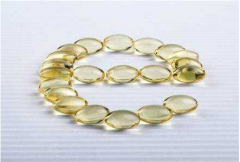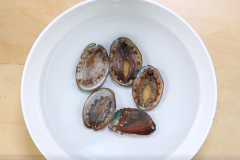欧洲运动会开幕
欧洲有没有“欧运会”?
分类: 教育/科学 >> 科学技术
解析:
世界上不乏综合性运动会,按地理划分有亚运会、全非运动会、泛美运动会、亚非运动会,按政治历史因素分类的有英联邦运动会,甚至还有按语言作为纽带的综合性运动会如葡语系运动会。在亚洲,还可以拆分为东亚运动会、西亚运动会、东南亚运动会。这些运动会现在都活得滋润,不像有些运动会由于时运不济,或英年早逝,或幼年夭折,如友好运动会和太平洋运动会,现在只能活在记忆中。
唯独欧洲没有洲际性运动会,所谓的“欧运会”是一个生造词,在GOOGLE里大概找不到。
欧洲人对“欧运会”不感兴趣,原因诸多,比如欧洲国家间来往比较方便,易于举办各类比赛,联赛制度也比较健全,但恐怕更重要的原因在于他们已经有了一个奥运会。
奥运会当然不属于欧洲,但早期的奥运会欧化、西方化色彩非常浓烈。奥运会不仅是欧洲人所创,而且几乎为欧美人量身定做。其项目进进出出,但不脱离欧美人的流行项目,直到现在奥运会的击剑比赛,裁判语言仍为法语。奥运会办来办去,不离大西洋两岸,金牌也基本挂在欧美选手的胸前。可以说,前半辈子的奥运会堪称“欧美运动会”,是西方文化的产物和标志。既然有此,欧洲人也没有必要再重复办一个“欧洲运动会”。
但是,奥运会所倡导的奥林匹克精神和理念吻合人类共同的价值观,五环旗逐渐成为全人类共同的旗帜,在最近二三十年里,奥运会的非西方化倾向有加速的态势。一些被东方文化锻造出来或者是东方人擅长的项目如柔道、跆拳道、乒乓球、羽毛球昂首进入奥运殿堂,中国队在奥运会金牌战中四年一跃,刘翔、北岛康介更是在西方人的世袭领地上超凡入圣,北京举办2008年奥运会也是众望所归。
正是当初奥运会离亚洲太远,所以亚洲人才需要设立一个离我们更近的亚运会,需要一个能交流亚洲人流行项目的舞台。通过这个舞台,亚洲人学习、融入乃至超越西方的强项;同时也把柔道、羽毛球等东方项目的魅力扬播到全世界。在亚洲人进军奥林匹克舞台的历程中,亚运会功不可没。它是亚洲体育由弱到强的功臣和见证,是亚洲选手扬威奥运会的跳板和摇篮。没有亚运会,奥运会的全球化进程会慢得多。
半个多世纪来,亚运会之所以能生存乃至兴旺,其核心正在于坚持了东方文化的特色,没有从一开始就定位于一个“亚洲奥运会”,没有像我们的全运会那样与“奥运会全面接轨”而放弃自己的特色,因此当年亚运会上的非奥项目柔道、羽毛球等才能最终跻身奥运殿堂。否则,现在的奥运会仍是一个西方化而不是全球化的奥运会。(新华网多哈12月10日电记者许基仁)
欧洲有欧运会吗?
欧洲有欧运会。欧洲运动会(European Games),简称”欧运会“,是由欧洲奥林匹克委员会(European Olympic Committees)主办的洲际综合性运动会,每四年举行一次,在奥林匹克运动会的前一年举行。第一届欧洲运动会于2015年6月12日至6月28日在阿塞拜疆的首都巴库市举行。扩展资料关于欧运会的比赛项目欧洲运动会每四年举办一次,共设16个奥运会项目和2个非奥运会项目,包括:水上项目(跳水、游泳、花样游泳、水球)、射箭、羽毛球、篮球、拳击、皮划艇、自行车、击剑、足球、体操(竞技体操、艺术体操、蹦床)、柔道、空手道、射击、乒乓球、跆拳道、铁人三项、排球(排球、沙滩排球)和摔跤(自由式摔跤、古典式摔跤)。参考资料:百度百科:欧洲运动会
麻烦能给我发一份伦敦奥运会开幕式的BBC版英文解说词么,谢谢啦~~~~
BBC直播北京奥运会开幕式解说词
Sue Barker: Good afternoon. In case you are wondering that how important the Olympic Games are and that what it means to the athletes then those three “wise men” should know since they have been to twelve Olympic Games between them. So let’s say we are here in Beijing and we are now in this magnificent ninety-one thousand seats stadium. It’s the national stadium; it’s affectionately known as “the Bird’s Nest”. We are preparing for what is promised to be, a truly spectacular opening ceremony. It won’t start though until 8 o’clock as promised, 8 o’clock local time on the 8th day of the 8th month, 2008. So you won’t miss a thing.
But now for many years have sport and politics had such an uneasy unbalance. There has been political conflict; there have been international protest and environmental fears. As well, there has been so much debate since the People’s Republic of China and Beijing were awarded the games back in 2001. Huw, the world is watching China around Beijing, can you put these games into political contexts for us please?
Huw Edwards: Well, Sue, this is quite something. This is basically China saying to the world: we arrived; we are a 21st-century super power; we can do the best Olympics ever. They spent 40 billion dollars on these games. Nothing can go wrong as far as they are concerned.
Sue Barker: Carrie, Can you tell us what the Games means to people in China?
Carrie Gracie: Well, as far as I can see, people here are really not exposed to the negative messages we have been talking about: the protest, the environment worries, the heavy-handed security. Most people are proud. They are ready to party after seven years of getting ready.
Sue Barker: There are other issues involved here, Michael. For example, President Bush is here for the Opening Ceremony tonight. For the first time the American president is on the foreign soil for opening ceremony. What has been the reaction to that back home in the United States?
Michael Johnson (4-time Olympic champion (1992-2000)): I don’t think many people are really so surprised that he decided to come here, and I think his decision is less political. I think he probably made the personal decision that he wanted to take advantage of the opportunity to come here, to see this and to be a part of the ceremony, regardless of anyone thinks back at home.
Huw Edwards: This is how the Games of the 29th Olympiad are beginning. 2008 drummers are beating the count-down in a way that has never been before. The drummers themselves are producing remarkable electrifying effect.
Sue Barker: These are the full drums calling up the ancestor 4000 years old, 2008 of them.
Huw Edwards: They are waiting for the signal, for the final count-down that Beijing has been waiting for seven years. A minute to go.
Huw Edwards: The Bird’s Nest stadium is filled by energy of these drummers with the very precise message carried.
Sue Barker: Yes. The message is from Confucius saying two and half thousand years old. “Friends come from the far. How happy we are!”
Huw Edwards: This is the bird’s-eye view across the centre of Beijing. The fireworks are creating burning footprints all the way from the Tian’anmen Square, up the central axis, to the Olympic Green and the neo National Stadium.
Sue Barker: So much resonance to the imperial China here. The Confucius, who of course was taboo during the years of the revolution, now is back in style. So are these imperial accesses right through the Forbidden City, and all the identifying marks of five thousand years of the united imperial history.
Huw Edwards: There will be twenty thousand fireworks used for doing this opening ceremony, and the dust creates the Olympic rings. Five rings represent the five continents, the symbol of Olympic unity, unity of mankind in sport.
Sue Barker: You can see the performers suspended, floating through the air and coming down from the huge wires attached to the roof of this stadium. What is worth mentioning is this is a kind of 21st-century take-on of Buddhist figures you find on the walls of caves of Dunhuang. This is the reference to China’s huge northwestern Tang Dynasty spread of the Silk Road.
Huw Edwards: The rings, which are magically made of dust, now somehow raise in this stadium, indicating the arrival of the Olympics in China.
Carrie Gracie: The genius behind this very original opening ceremony, Zhang Yimou, is very much back in now. In a way, he is the story of contemporary China. He told us the other day that he wanted this ceremony to say to the world: romance, family.
Huw Edwards: What he also says is that China is very proud of its 5000 years of civilization. It is not afraid to modernize.
(After the raising of Chinese national flag)
Another spectacular display of fireworks, not just over the Olympic Stadium but over the city. The red flag flutters inside the national stadium. Is the red flag saying something about Chinese history as well, Carrie?
Carrie Gracie: Well, yes, because that’s about what all we are going to say about Chinese Communism in this opening ceremony. The five stars on the flag signify the unity of the country and the leadership of Chinese Communist Party. But we are going to say about a lot more of this kind of images, the traditional, the calligraphy, the culture, the sophistication of ancient China.
Huw Edwards: Indeed. What’s now going to happen is that we are going to enjoy different phases of Chinese history, different aspects of Chinese culture, some of them quieter, some of them on a very big scale.
Very clever is the way they led us from the little film introducing the theme of the scroll to this actual scroll, which is on the floor of this arena. It measures at least 25 meters in width and the length covers the entire length of the arena itself, so believe me, it is big. And this would be the canvas on which lot of tableaus will be painted.
Carrie Gracie: We are going to say that the wash painting developed in China during the Tang Dynasty. To begin, artist puts a few drops of water on ink stone, grinds the ink in circular motion, and then paints with a brush made of wolf hair or horse hair.
Huw Edwards: While the painting goes on, the stream of cultural icons of Chinese historical progress flows on the painting scroll itself. Very cleverly done.
Carrie Gracie: This is the Guchin, the ancient seven-stringed instrument we hear at the same time. We are going to see many of Chinese instruments during the course of this opening ceremony, and this is one of the most harmonious to Chinese ear. And the whole theme of this ceremony is harmony.
Huw Edwards: The Guchin, as Chinese say, has a history of three thousand years, and they claim it is the oldest pluck instrument in the world. I’m sure there will be other views on that, but this is the claim being made.
Carrie Gracie: These are ‘the three thousand disciples’ of Confucius, whether he really had three thousand, no matter, but certainly he does in this performance. What they chant is “All those within four seas can be considered as brothers” from The Analects, Confucius’s most famous work.
Huw Edwards: They are holding bamboo slips, a kind of books with scripts carved on the stringed bamboo slices. Again, the energy created by these men inside this stadium is remarkable.
The three thousand disciples of Confucius are celebrating learning, celebrating Chinese philosophy, and that learning of course takes the forms of books and paper, and of what we are going to see – the printed words.
Carrie Gracie: Confucius had the habit of speaking truth to the power when in and out of favor. – Here we have the example of the first movable type system, which was created here in China, out of ceramic blocks, around 1041 A.D. It was in 1450s for Europe to introduce what generally regarded as the independent invention of moveable type, and that was created by Germany’s Johannes Gutenberg.
We see here the evolution of one character, one special character which holds the clues to everything else this evening. This character is “he”, and it means harmony.
Moveable type began in the Sui Dynasty in the sixth century. Bi Sheng, in the Song Dynasty, improved the matter by making clay types and print. Every Chinese school child is told that the movable type is one of the greatest inventions of ancient Chinese civilization, along with the gun powder, the paper, and the compass. There is the modern character “he”, the one that you will see written in China today.
Huw Edwards: Peach blossoms, romantic and enjoyable, demonstrating the sweetness, peace and love in Chinese people.
上一篇:运动短裤图片
下一篇:没有了






